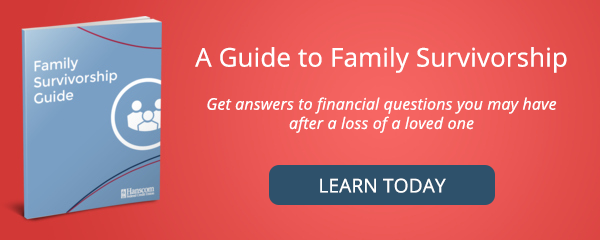When a parent passes away, the loss can be made more difficult with the weight of trying to organize their financial affairs. The difficulty is compounded if they pass away suddenly and/or you don't know where their financial information is kept.
While your parents are alive, discuss where and how to locate these documents. It can be a difficult subject to bring up, but chances are, your parent has already given their exit strategy some thought and is also looking for the right time to talk about these matters.
If your parent has passed away and you're at a loss what you should do first, here are six steps you can follow:
- Contact the funeral home. They can get copies of the death certificate for you. Get at least 6 certified copies because you'll need these when you contact your parent's financial institutions, insurance companies, and government agencies.
- Contact utility companies to let them know of the death and ask that they send you a final bill. If your parent has a surviving partner or spouse, make sure the utilities and other bills or accounts get transferred into that person’s name. If the house will remain vacant for some time, make arrangements to have the utilities transferred in the name of your parent's estate until the house is sold or given to an heir or beneficiary.
- Contact an attorney specializing in estate issues in your parent's jurisdiction. Your attorney will advise you how to proceed with estate settlement based on state probate laws, which may be quite different from your understanding of your own state's laws. There may be a temptation to try to go it alone, but making mistakes could cost you more than an attorney will. You could even be fined if you improperly execute the distribution of assets. If possible, try to work with the attorney who drew up your parent’s will, or a trust if they had one. If that attorney is not available, contact the state’s bar association for a referral.
- Make a special point to talk with the attorney about any secured debts your parent had, such as auto loans, HELOCs, and mortgages, and what options are available for handling those.
- While an attorney can guide you through most of the executor duties, it will make things easier for you if you make a commitment to communicating all pertinent information to anyone who is named in the will/trust. This helps to avoid confusion or hard feelings going forward.
- Contact the life insurance company that holds your parents policy to begin the processing of the claim. Also contact any insurance companies your parent had a policy with to notify them of the passing and see if any cash benefits are due to survivors. Your attorney may also work with you on your behalf to ensure any claims are paid promptly.
Our Family Survivorship Guide will help steer you through some of the uncertainties around putting your loved one’s financial affairs in order. Some of the topics covered include settling accounts, documentation you'll need, how to establish an estate account, and more. Download your free copy here.
Others are reading:













Comment